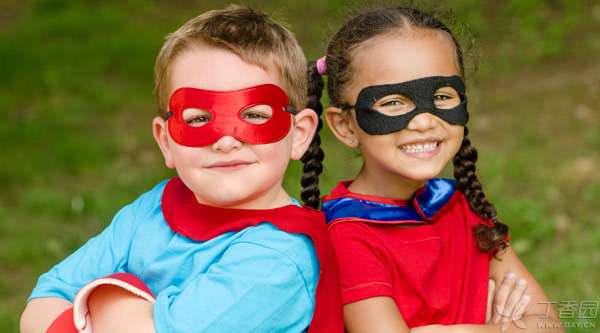
Children’s emotions and behaviors are abnormal. I don’t know how to deal with them. There is always a way to stop the soldiers and hide the water from the earth.
We all know that children are often very emotional and sensitive, but do you know why? It is because children do not have the ability to understand the complexity of the adult world. At the same time, they also lack the ability to express their emotions and feelings.
Does the child’s worsening emotional imbalance keep you awake at night? Don’t worry, looking down, our list of children’s emotional problems may help them get out of trouble as soon as possible.
How is the child mood disorder return a responsibility?
When a child is facing emotional disorders or emotional disorders, this often means that he is experiencing a period of emotional anxiety.
This period may last for days, weeks or even months. In some more serious cases, without proper help, the emotional disorder period will be prolonged for several years or even into adulthood.
So, is what a child’s emotional disorder?
A general term for a mental disorder, It is manifested as a serious disorder in children’s thoughts, behaviors and feelings. In some serious cases, severe emotional disorders can meet the diagnostic criteria for mental disorders. The diagnosis of [severe emotional disorders] is not widely used in China, but its subclassification, which will be discussed below, is shared by us and American doctors.
According to US official reports, one in 10 children or adolescents has emotional disorders and needs psychological intervention. About 5% of children suffer from severe emotional disorders or have serious emotional problems.
What are the types of emotional disorders in children?
1. Destructive behaviour
This is the most common type of emotional disorder in children.
2. ADHD, or [Attention Deficit Hyperactivity Disorder]
The main characteristics of children with this disorder are distraction, often showing impulsive behavior and overactivity.
It may be difficult for him to cooperate with others, complete a certain job or command actions.
3. Oppositional defiant disorder
Children suffering from such disorders will frequently argue with parents, teachers and other authorities and become angry.
When dealing with people, they may also be easily angered and angered.
4. Conduct disorders
Children with this kind of emotional disorder will continue to have abnormal behaviors that do not conform to their age stage, or do things that invade others.
If such children are questioned about their improper behavior, they may show defensive posture or even attack each other.
Children with such disorders are characterized by frequent and paroxysmal theft, fights and vandalism.
5. Affective disorders
This kind of mental disorder will affect children’s emotions and is also one of the most common mental diseases in children, including depressive disorder and bipolar disorder.
- Depression: Parents Need Attention, Children suffering from depressive disorder may suddenly be silent and lack communication, Eat little, Poor mental state, dozing off all the time, Don’t want to play with children, study energy is not concentrated, unhappy, irritable, pessimistic, even have suicidal tendency. Bipolar disorder: This kind of child is in two completely opposite mood swings, from quiet abnormal to sudden mania. Sometimes they are too energetic, want to do things can’t stop, don’t need to sleep at all; Sometimes I feel depressed and short-tempered, and drastic changes in behavior may be accompanied by changes in mood from extreme happiness to extreme sadness and pain, just like a pendulum.
6. Anxiety Disorder
Children with anxiety disorders always have excessive and unrealistic worries, so they need to confirm something with you repeatedly. They may often have headaches and stomachaches.
Their anxiety disorders are mainly manifested in the following two types:
- Separation anxiety: It is difficult for children to leave their parents, even if they are separated for only one minute or in different rooms. Children with severe symptoms may have repeated nightmares and even refuse to go to school. Obsessive-compulsive disorder: These children will repeatedly have negative thoughts and relieve anxiety through some strange and fixed ritual behaviors.

How to treat children’s emotional disorders?
In the United States, if a child is diagnosed with emotional disorders, the general doctor will have the following suggestions:
- Perform individual psychotherapy or family therapy, let children receive special education, train children to improve their social and behavioral abilities, and let children live in special schools, hospitals or other intervention places.
In China, parents can seek diagnosis and treatment from general hospitals, psychiatric clinics in children’s hospitals, or psychiatric specialized hospitals.
Parents may be very mad to see their children’s emotional problems, but emotional disorders can be completely cured with timely psychological intervention and care.
I hope you can see here that you have understood how to solve your child’s emotional problems. Is your child suffering from emotional disorders? What ways will you take to help him overcome the difficulties?
Responsible Editor: Ding Ruoshui
